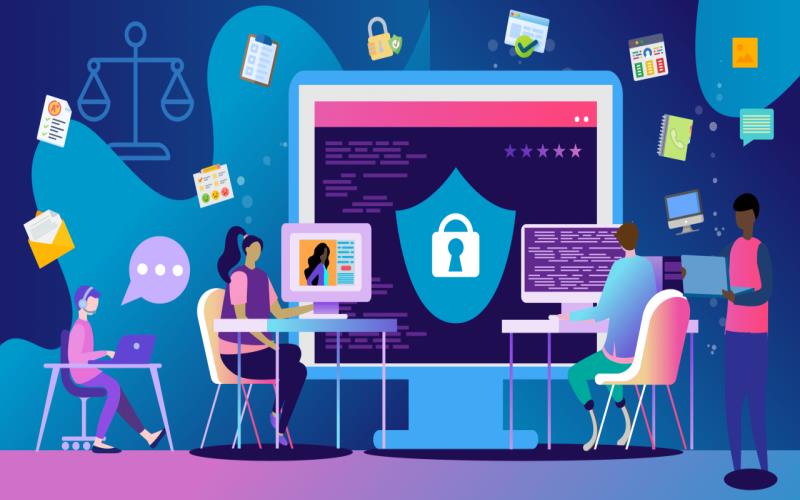Online gaming has brought people together from all corners of the globe, fostering vibrant communities and providing avenues for social interaction, competition, and entertainment. However, alongside its many benefits, online gaming also presents ethical challenges, particularly concerning cyberbullying and toxicity within gaming environments. Addressing these issues is crucial for creating inclusive, respectful, and enjoyable gaming experiences for players of all backgrounds. Let’s delve into the ethical considerations surrounding cyberbullying and toxicity in online gaming and explore strategies for promoting positive and healthy gaming environments.
Understanding Cyberbullying and Toxicity
Cyberbullying refers to the use of electronic communication to bully, harass, or intimidate others. In the context of online gaming, cyberbullying can manifest through verbal abuse, derogatory language, threats, exclusionary behavior, and targeted harassment directed at players. Toxicity, on the other hand, encompasses negative behaviors, attitudes, and interactions that create a hostile or unwelcoming environment within gaming communities.
Common examples of toxicity in online gaming include:
Verbal Abuse: Insults, profanity, and offensive language directed at other players.
Discrimination: Racism, sexism, homophobia, and other forms of discrimination or prejudice.
Harassment: Persistent targeting, stalking, or threatening behavior towards specific players.
Trolling: Deliberate disruption, provocation, or trolling to incite reactions or cause frustration.
Cheating and Exploitation: Unfair gameplay tactics, cheating, exploiting glitches, or unethical practices.
Impact on Players and Gaming Communities
Cyberbullying and toxicity have significant impacts on players’ well-being, mental health, and overall gaming judi slot experiences:
Emotional Distress: Targeted harassment and verbal abuse can cause emotional distress, anxiety, and low self-esteem among players.
Deterioration of Community: Toxic behavior erodes trust, camaraderie, and the sense of community within gaming environments, driving players away and hindering positive interactions.
Barriers to Inclusivity: Cyberbullying and toxicity create barriers to inclusivity and diversity by alienating players based on their identities, backgrounds, or experiences.
Negative Reputation: Communities or games known for high levels of toxicity may develop negative reputations, deterring new players and impacting community growth.
Distracted Gameplay: Dealing with toxic behavior can distract players from enjoying the game, impacting their focus, performance, and overall enjoyment.
Ethical Guidelines and Best Practices
Addressing cyberbullying and toxicity in online gaming requires a multi-faceted approach involving players, game developers, community moderators, and platform operators. Here are some ethical guidelines and best practices to promote a positive gaming environment:
Clear Codes of Conduct: Establish clear and enforceable codes of conduct or community guidelines that outline expected behavior, consequences for violations, and avenues for reporting toxic behavior.
Community Moderation: Empower community moderators or moderators within games to monitor and address toxic behavior promptly. Implement reporting systems and moderation tools to flag and address problematic behavior.
Player Education: Educate players about respectful communication, sportsmanship, and the impact of toxic behavior on others. Promote empathy, understanding, and constructive interactions within gaming communities.
Inclusive Design: Design games and platforms with inclusivity in mind, considering diverse player backgrounds, identities, and preferences. Avoid stereotypes, discriminatory content, or mechanics that incentivize toxic behavior.
Anti-Bullying Campaigns: Collaborate with organizations, advocacy groups, and mental health professionals to raise awareness about cyberbullying, promote anti-bullying initiatives, and provide resources for players affected by bullying.
Fair Play and Transparency: Emphasize fair play, integrity, and transparency in gaming environments. Combat cheating, exploitation, and unethical practices through robust anti-cheat measures, fair matchmaking systems, and clear rules.
Positive Reinforcement: Recognize and reward positive behavior, sportsmanship, and contributions to fostering a positive gaming community. Encourage players to be role models and ambassadors for respectful gaming conduct.
Community Engagement: Foster community engagement through events, forums, feedback channels, and collaborative initiatives. Involve players in shaping community guidelines, organizing events, and addressing community concerns.
Technological Solutions
Technological innovations can also play a role in combating cyberbullying and toxicity:
Automated Filters: Implement chat filters and automated systems that detect and filter out offensive language, hate speech, and inappropriate content in real-time.
Behavioral Analysis: Use AI and machine learning algorithms to analyze player behavior patterns, identify toxic behaviors, and intervene proactively.
Reporting and Enforcement Tools: Enhance reporting mechanisms with streamlined reporting processes, anonymity options, and responsive enforcement of community guidelines.
Player Feedback Loops: Gather feedback from players about their gaming experiences, concerns, and suggestions for improving community health. Use player input to inform policy decisions and community management strategies.
Building a Positive Gaming Culture
Creating a positive gaming culture requires ongoing efforts, collaboration, and a collective commitment to ethical gaming practices. Players, game developers, platform operators, and gaming communities all play crucial roles in shaping the future of online gaming environments. By promoting inclusivity, empathy, respect, and responsible gaming behaviors, we can foster welcoming and enjoyable gaming spaces where players can thrive, connect, and celebrate their shared passion for gaming.
Conclusion
Ethical considerations in online gaming, particularly regarding cyberbullying and toxicity, are paramount in ensuring healthy, inclusive, and thriving gaming communities. By implementing clear guidelines, fostering positive behaviors, leveraging technological solutions, and promoting education and awareness, we can mitigate the negative impacts of cyberbullying and toxicity while nurturing a positive gaming culture that benefits players and communities alike. Together, we can create gaming environments where everyone feels respected, valued, and able to enjoy the benefits of online gaming responsibly.

